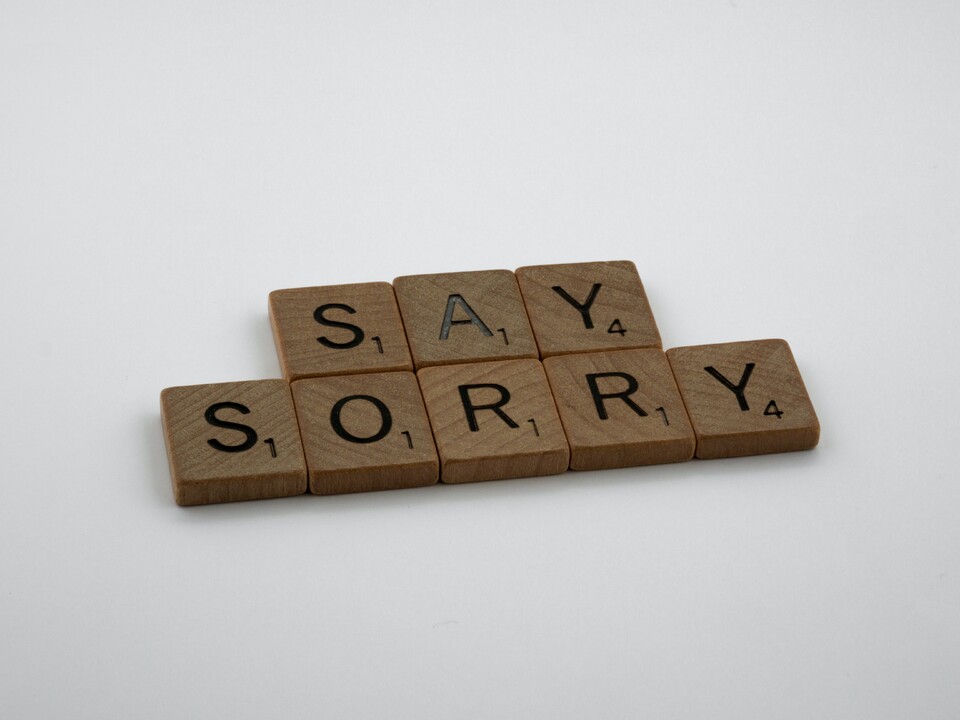Why Chris Rock doesn’t have to accept Will Smith’s video apology (but why Smith had to make it)

When Will Smith slapped Chris Rock at the Academy Awards, that act of aggression was jarring for many reasons. In no way should Rock’s tepid joke – or that of any comedian making a globally televised performance – merit that kind of unprofessional, outsized reaction. It disrupted what was a solid awards event and drew attention away from individuals who deserved to be recognized for amazing achievements. Now with Smith’s recent apology video, people are wondering if Rock is going to accept it. I’m here to say that he doesn’t have to.
According to the Greater Good Science Center at the University of California, Berkeley, “psychologists generally define forgiveness as a conscious, deliberate decision to release feelings of resentment or vengeance toward a person or group who has harmed you, regardless of whether they actually deserve your forgiveness.” You get to decide if you wish to practice forgiveness based on your specific situation.
As a certified professional co-active coach, I don’t believe we owe anybody forgiveness. The key word here is owe. Forgiving ourselves is necessary for our own well-being, but you do not have to extend that gift to someone who has done you harm, as Smith did so publicly to Rock.
To date, Rock has dealt with the situation using humor. As reported by CNN, during a comedy set the night the apology video was issued on July 29, 2022, Rock compared Smith to violent rapper Suge Knight, who is currently in prison, saying “Everybody is trying to be a f—ing victim. If everybody claims to be a victim, then nobody will hear the real victims. Even me getting smacked by Suge Smith … I went to work the next day, I got kids.”
On the surface, Rock doesn’t appear to be hurting from the incident. The person who would benefit the most from a public acceptance of the apology is Smith, whose reputation has been tarnished. Rock knows that all too well.
We don’t know what Rock is feeling inside. I’m sure he feels anger and disrespect, but it may not be lingering. However, if the angst and negative energy you feel wrapped around being wronged is holding you back in some way or keeping you from healing, then it may be time to consider forgiving a transgression.
The Value of Forgiveness
Being wronged in some way, intentionally or not, can get you stuck in a really negative place if you’re unable or unwilling to work through those feelings. Often, we hold on to that energy, let it stew, and release it in damaging ways, such as anger, resentment, and revenge.
The Mayo Clinic notes that if a person is unforgiving, the consequences could include bringing bitterness and anger into relationships, an inability to enjoy the present, depression or anxiety, a lack of a greater sense of meaning or purpose, and the loss of valuable connections with others.
If you are faced with forgiving someone who has done you wrong, what should you do? Consider if the act of forgiveness will help you release negative feelings. When you release resentment, judgment, bitterness, and more, it frees you to move forward and rebound more fully from the circumstance that caused you pain or harm. Research has shown that forgiving others can increase your resilience, make you stronger and better able to withstand challenges.
Forgiving others can also improve your mental and physical well-being. Take the forgiveness research conducted by Fred Luskin, PhD, the author of Forgive for Good: A Proven Prescription for Health and Happiness, as an example. He applied his forgiveness therapy to individuals who’ve been through serious trauma—people affected by the violence in Northern Ireland and Sierra Leone, and US residents impacted by the events of September 11, 2001. His findings showed that those who went through general forgiveness therapy reduced their blood pressure levels, became more optimistic, and achieved greater peace with the past.
Why Smith Had To Apologize
When you’ve done something wrong, it is important to apologize. It is just the right thing to do. When your apology is authentic and you appear serious about making amends, people can be open to forgiving your actions.
Smith absolutely had to issue an apology – especially since his comments immediately after winning an academy award ignored what he did to Rock. He resigned from the Academy, has been banned from the award ceremony for a decade and hit once positive brand has taken a big hit that will impact future projects. His career is on the line.
Do I think his apology video was effective? Mostly, because the real audience is the general public. It garnered tremendous media coverage that Smith is trying to atone. From a public relations perspective, the video itself was kind of awkward because the title cards and Q&A format distanced Smith from a situation that he really needed to own.
Atonement is an important step in forgiving yourself for what you have done. Personally, I’m rooting for Smith. Have always liked him as an actor and man of inspiration, and we all make mistakes. His happened to be in the most public forum possible. Rock did not deserve what happened, and neither did anyone else attending the ceremony whose moments of recognition were overshadowed by Smith’s actions.
My admiration for Chris Rock has grown. He showed restraint when attacked on stage and has continued to be professional. There is no obligation for him to publicly accept Smith’s apology. But if this transgression is hurting him internally, privately accepting an authentic apology could be beneficial.
If you have been feeling a little – or even a lot – stuck these days, check out my “What Kind of Stuck Are You?” Quiz to gain more insight on what may be holding you back – and what to do about it.
Looking for a step-by-step process to help you get unstuck and stay that way for good? Check out Free and Clear: Get Unstuck and Live the Life You Want. It is chock-full of helpful tips, easy-to-use tools and inspirational stories of individuals who overcame obstacles against the odds.
